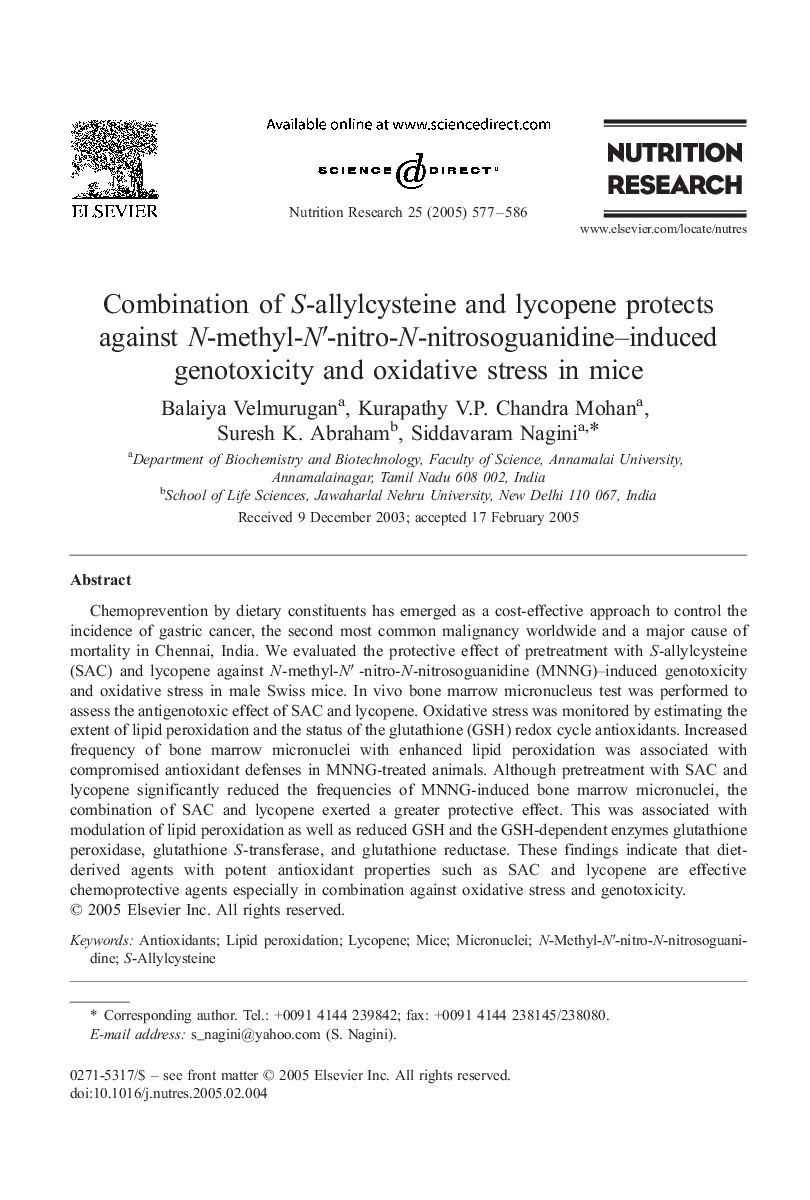| Article ID | Journal | Published Year | Pages | File Type |
|---|---|---|---|---|
| 9119003 | Nutrition Research | 2005 | 10 Pages |
Abstract
Chemoprevention by dietary constituents has emerged as a cost-effective approach to control the incidence of gastric cancer, the second most common malignancy worldwide and a major cause of mortality in Chennai, India. We evaluated the protective effect of pretreatment with S-allylcysteine (SAC) and lycopene against N-methyl-Nâ²-nitro-N-nitrosoguanidine (MNNG)-induced genotoxicity and oxidative stress in male Swiss mice. In vivo bone marrow micronucleus test was performed to assess the antigenotoxic effect of SAC and lycopene. Oxidative stress was monitored by estimating the extent of lipid peroxidation and the status of the glutathione (GSH) redox cycle antioxidants. Increased frequency of bone marrow micronuclei with enhanced lipid peroxidation was associated with compromised antioxidant defenses in MNNG-treated animals. Although pretreatment with SAC and lycopene significantly reduced the frequencies of MNNG-induced bone marrow micronuclei, the combination of SAC and lycopene exerted a greater protective effect. This was associated with modulation of lipid peroxidation as well as reduced GSH and the GSH-dependent enzymes glutathione peroxidase, glutathione S-transferase, and glutathione reductase. These findings indicate that diet-derived agents with potent antioxidant properties such as SAC and lycopene are effective chemoprotective agents especially in combination against oxidative stress and genotoxicity.
Keywords
Related Topics
Life Sciences
Biochemistry, Genetics and Molecular Biology
Endocrinology
Authors
Balaiya Velmurugan, Kurapathy V.P. Chandra Mohan, Suresh K. Abraham, Siddavaram Nagini,
